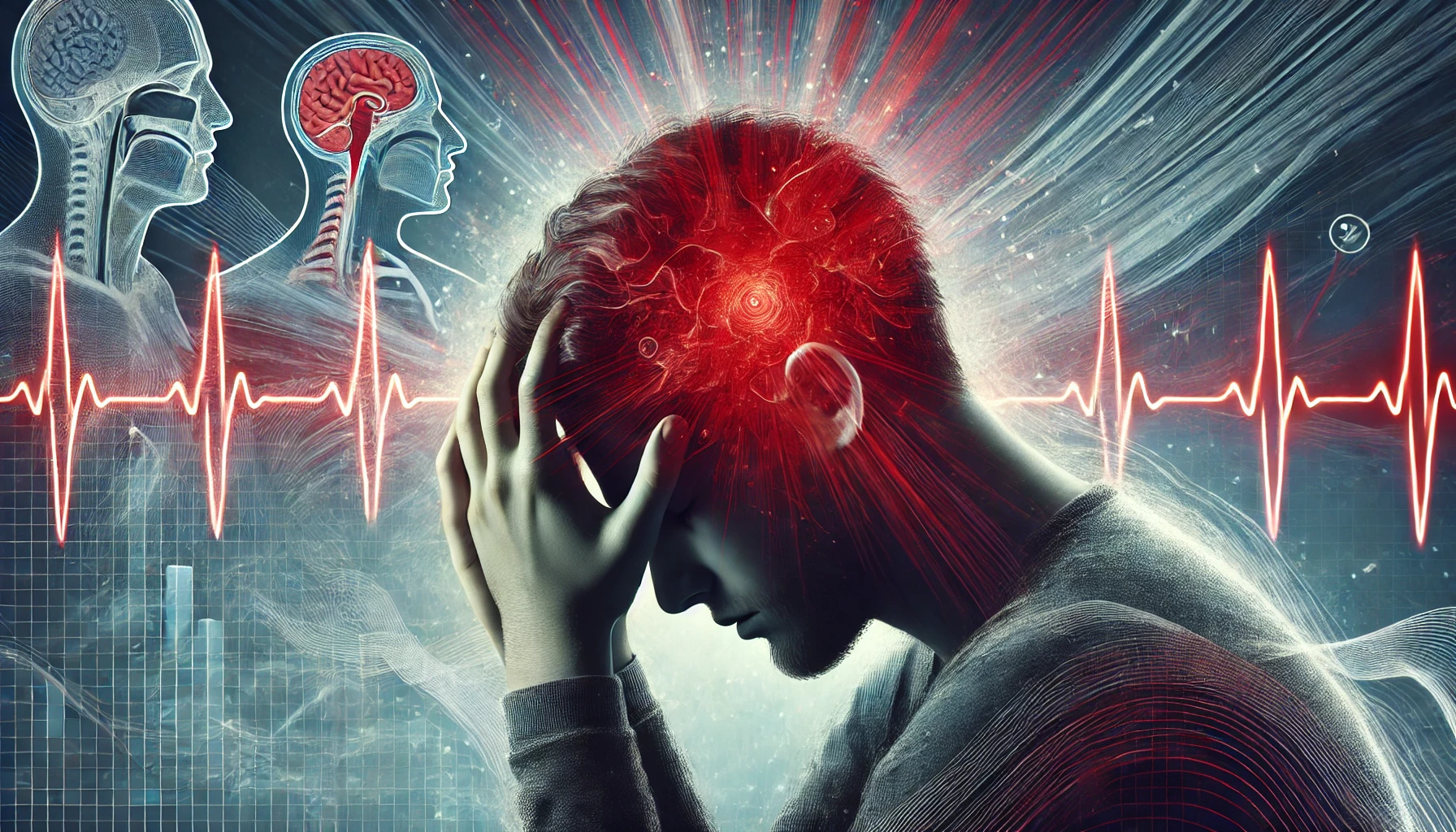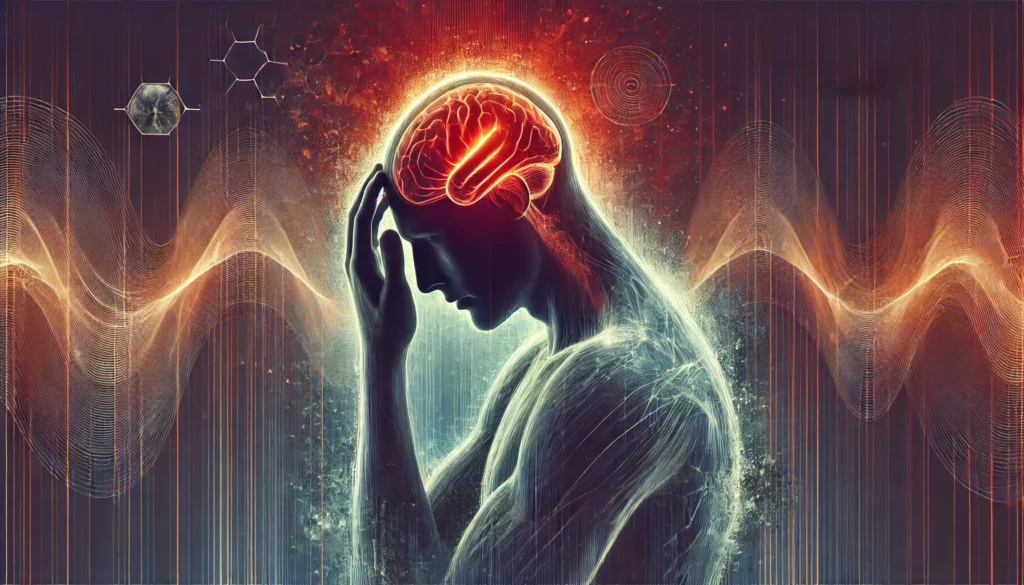
14 Mar Post Traumatic Headache ICHD – ICHD Classification of Post-Traumatic Headaches!
Post-traumatic headaches (PTH) are a type of headache that occurs after a head injury or trauma, often following concussions or other brain injuries. Recognized under the International Classification of Headache Disorders (ICHD), post-traumatic headaches can significantly affect a person’s quality of life. These headaches can range from mild to severe and may persist for weeks, months, or even years after the initial injury.
In this article, we will explore what post-traumatic headaches are, how they are classified under the ICHD, common symptoms, potential causes, and available treatments for managing the condition.
What Are Post-Traumatic Headaches?
A post-traumatic headache (PTH) is a headache that develops after a head injury, including concussions or traumatic brain injuries (TBI). While most individuals will experience headaches after an injury, some may develop chronic post-traumatic headaches that can last for extended periods.
These headaches may resemble common headache types like migraines or tension-type headaches, but they have unique characteristics linked to the trauma that caused them. They can occur immediately after the injury or develop gradually over time.
Read Also: Pediatric Headache Red Flags: What Parents Need to Know – Warning Signs of Headaches in Children!
Post-Traumatic Headache Classification Under the ICHD
The International Classification of Headache Disorders (ICHD) is a standardized system used to classify and diagnose various types of headaches. Under this system, post-traumatic headaches are classified as follows:
ICHD-3 Criteria for Post-Traumatic Headache
The ICHD-3 (the third edition) outlines specific criteria for diagnosing post-traumatic headaches. The general guidelines include:
- A history of head trauma or injury that occurred within the past seven days to several weeks.
- The headache develops within 7 days of the trauma and persists.
- The headache cannot be attributed to other underlying conditions.
- The headache often resembles a tension-type headache but may also have characteristics of migraines or cervicogenic headaches.
Tension-Type Post-Traumatic Headache
Tension-type post-traumatic headaches are the most common type, typically described as a constant, dull ache or tightness around the head. These headaches can be mild to moderate in severity and may worsen with stress or physical activity.
Migraine-like Post-Traumatic Headache
Some individuals may develop post-traumatic headaches that resemble migraines, including symptoms such as nausea, vomiting, sensitivity to light and sound, and throbbing pain. These are often more severe and can interfere significantly with daily life.
Other Post-Traumatic Headache Types
In some cases, the headache may present as a cervicogenic headache, which originates from the neck and spine. This can occur due to trauma to the cervical spine and surrounding muscles during the injury.
Causes of Post-Traumatic Headaches

Post-traumatic headaches can result from various factors, including:
- Concussions: A mild traumatic brain injury that causes the brain to move within the skull, leading to headaches.
- Traumatic Brain Injury (TBI): More severe head injuries that involve damage to the brain, resulting in persistent or long-term headaches.
- Neck and Spine Injuries: Injuries to the neck, such as whiplash, can also lead to headaches that originate in the cervical spine.
- Chemical Changes in the Brain: After trauma, the brain may undergo chemical changes that trigger pain pathways, leading to headaches.
- Cerebral Blood Flow Changes: Changes in blood flow to the brain after injury may contribute to the development of headaches.
- Post-Injury Stress: Psychological stress, anxiety, and depression following a traumatic event can also trigger or exacerbate headaches.
Symptoms of Post-Traumatic Headaches
The symptoms of post-traumatic headaches can vary depending on the type and severity. Common symptoms include:
- Dull, aching pain: Often described as a constant pressure around the head.
- Throbbing or pulsating pain: Similar to a migraine headache.
- Neck pain: Especially in cases where the injury involved the cervical spine.
- Sensitivity to light (photophobia): Common in migraine-like post-traumatic headaches.
- Sensitivity to sound (phonophobia): Another hallmark of migraine-like headaches.
- Nausea and vomiting: Particularly in severe cases resembling migraines.
- Difficulty concentrating: Often referred to as “brain fog,” this symptom may accompany the headaches.
- Fatigue: Feeling tired or drained, which is common in individuals with chronic headaches.
Treatment for Post-Traumatic Headaches
Managing post-traumatic headaches typically involves a combination of medical treatments and lifestyle changes. Here are some common approaches:
1. Medications
- Pain Relievers: Over-the-counter pain medications like ibuprofen or acetaminophen can help alleviate mild headaches. However, they may not be effective for more severe cases.
- Migraine Medications: For headache types that resemble migraines, doctors may prescribe medications such as triptans, which can relieve the intensity of the pain.
- Antidepressants and Anticonvulsants: These medications may help reduce the frequency and severity of chronic headaches.
- Muscle Relaxants: For headaches caused by neck and back muscle tension, muscle relaxants can help alleviate pain.
2. Physical Therapy
Physical therapy can be effective for those experiencing post-traumatic headaches related to neck injuries or muscle tension. Therapy may include neck exercises, stretching, and manual therapy to relieve tight muscles.
3. Cognitive Behavioral Therapy (CBT)
CBT can help manage the psychological aspects of post-traumatic headaches, including stress, anxiety, and depression, which may contribute to the pain. This therapy focuses on changing thought patterns that can exacerbate pain and discomfort.
4. Lifestyle Changes
- Rest and Sleep: Adequate sleep is crucial for recovery, as it helps repair the brain and reduce headache intensity.
- Stress Management: Relaxation techniques such as meditation, yoga, and breathing exercises can help reduce stress, which may trigger or worsen headaches.
- Dietary Adjustments: Staying hydrated and avoiding trigger foods or beverages (e.g., caffeine, alcohol) can help reduce the frequency of headaches.
5. Alternative Therapies
- Acupuncture: Some individuals find relief from chronic headaches through acupuncture, which may help alleviate pain and promote healing.
- Chiropractic Care: Chiropractic adjustments may help relieve tension in the neck and spine, particularly for those with cervicogenic headaches.
FAQs:
1 What are post-traumatic headaches?
Post-traumatic headaches are headaches that occur after a head injury, such as a concussion or traumatic brain injury.
2 How are post-traumatic headaches classified under ICHD?
They are classified as tension-type, migraine-like, or cervicogenic headaches based on their symptoms and characteristics.
3 What are the common symptoms of post-traumatic headaches?
Symptoms include dull or throbbing pain, neck pain, nausea, light and sound sensitivity, and fatigue.
4 How are post-traumatic headaches treated?
Treatment options include pain relievers, migraine medications, physical therapy, stress management, and sometimes cognitive behavioral therapy (CBT).
5 Can post-traumatic headaches last long after the injury?
Yes, post-traumatic headaches can persist for weeks, months, or even years after the initial injury in some individuals.
Conclusion:
Post-traumatic headaches are a common and debilitating condition that can significantly impact a person’s life after a head injury. Recognized by the ICHD, these headaches can vary in type, severity, and duration. Treatment options include medications, physical therapy, stress management, and lifestyle changes. If you experience persistent headaches following a head injury, it’s important to consult a healthcare professional for an accurate diagnosis and appropriate treatment.By understanding the causes, symptoms, and treatments for post-traumatic headaches, individuals can take steps to manage their condition and improve their quality of life.

No Comments